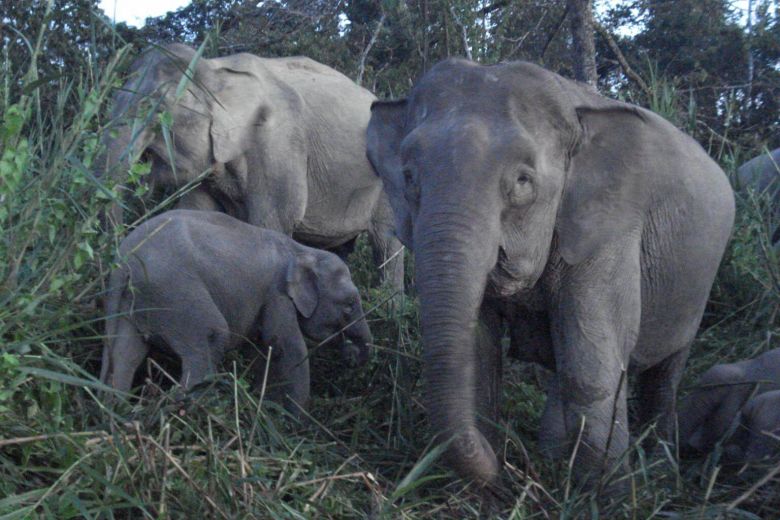Male elephants may be evolving 'tuskless' to survive poaching
Sign up now: Get insights on the biggest stories in Malaysia

Sabah has an estimated 1,500 to 2,000 pygmy elephants that continue to be under threat from poaching activities.
PHOTO: ST FILE
KOTA KINABALU (THE STAR/ASIA NEWS NETWORK) - Hunted for their tusks, the Borneo pygmy elephant may be evolving without tusks in Sabah's wild.
Sabah Wildlife Department assistant director Sen Nathan, who has been observing this growing pattern, said that it was rare in the past to see bull elephants without tusks.
But in recent years, there is a growing number of the elephants in their natural habitat without tusks.
"During the over 20 years of translocating elephants in Borneo, it was a rarity to find a bull elephant without a tusk," he said.
"Sadly nowadays, it has become a very common appearance.
"We don't know why but some scientists believe that the pressure of poaching might be triggering the elephants to evolve with missing tusks."
Dr Sen, who is in charge of Sabah Wildlife Rescue, said that the trend has also been seen among African elephant herds as well as Asian elephant herds.
"One good example of these changes can be seen in Sri Lanka, where more than 90 per cent of their bull elephants are tuskless," he said, adding that it was quite sad to see these animals lose their tusks in what could be an evolution to survive.
"It is a very interesting occurrence during our time," he added.
According to Dr Sen, the tusks were essentially overgrown teeth used by the bulls for digging for water or vital minerals in the ground, debarking trees to secure fibrous food and helping the males compete with one another for females.
In a report by National Geographic, elephant behaviour expert Joyce Poole observed that in war-torn Mozambique where elephants were killed for their ivory, studies showed that about 32 per cent of the elephants born after the civil war were tuskless.
Dr Poole, who is scientific director for Elephant Voices, said that the elephants which have missing tusks are surviving and appeared healthy.
The National Geographic report in November last year noted that the tuskless trend was also seen in countries with a history of substantial ivory poaching.
Usually, bull elephants grow tusks while female elephants have smaller tusks or tusks that are not evident at all.
Dr Sen said that they will continue to observe if the "tuskless" trend is taking place in Sabah.
"It's too early to say if the tuskless trend is happening in Sabah. But we can only say that we have come across such tuskless bulls more often," he added.
Sabah has an estimated 1,500 to 2,000 pygmy elephants that continue to be under threat from poaching activities.


